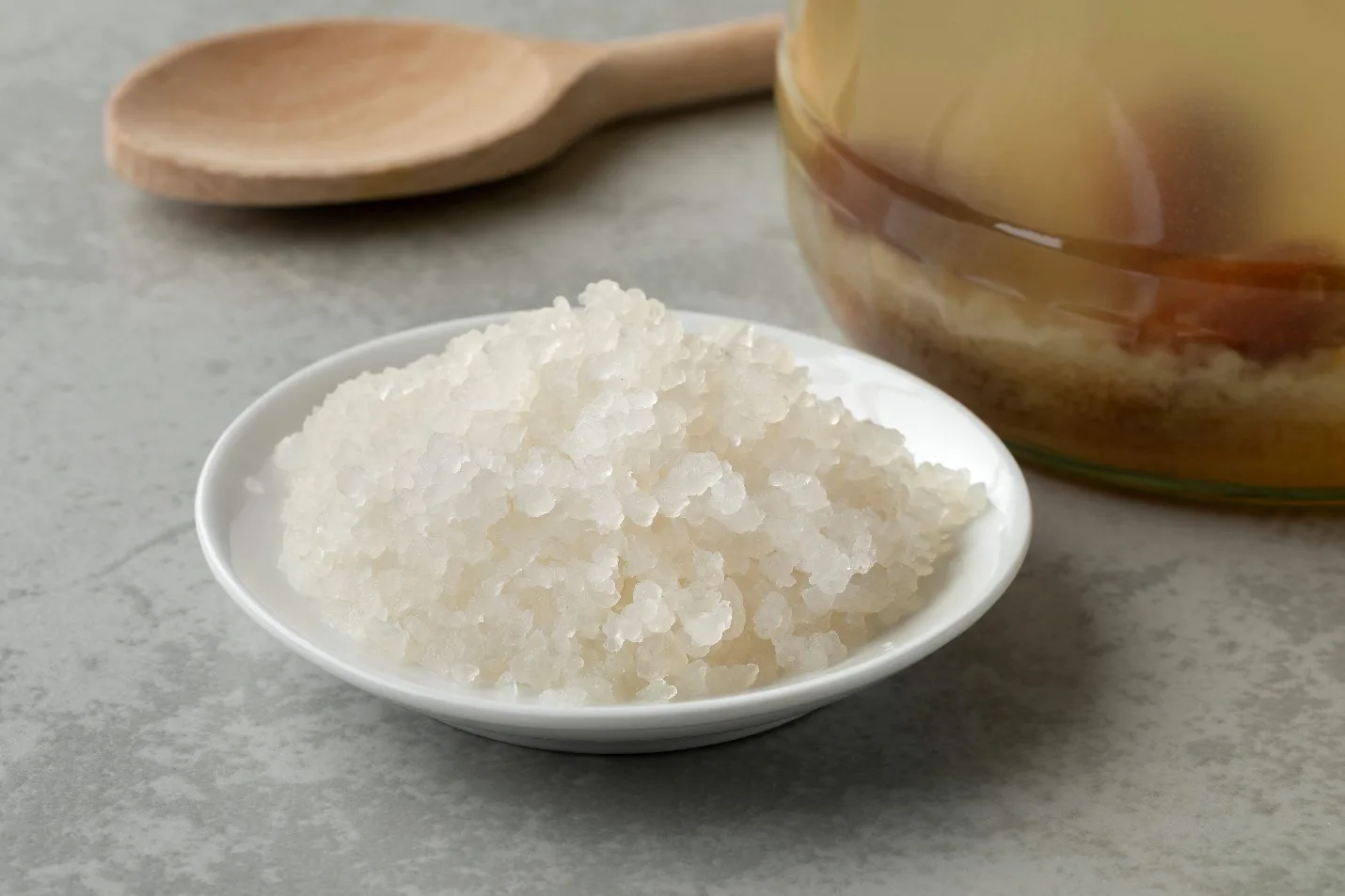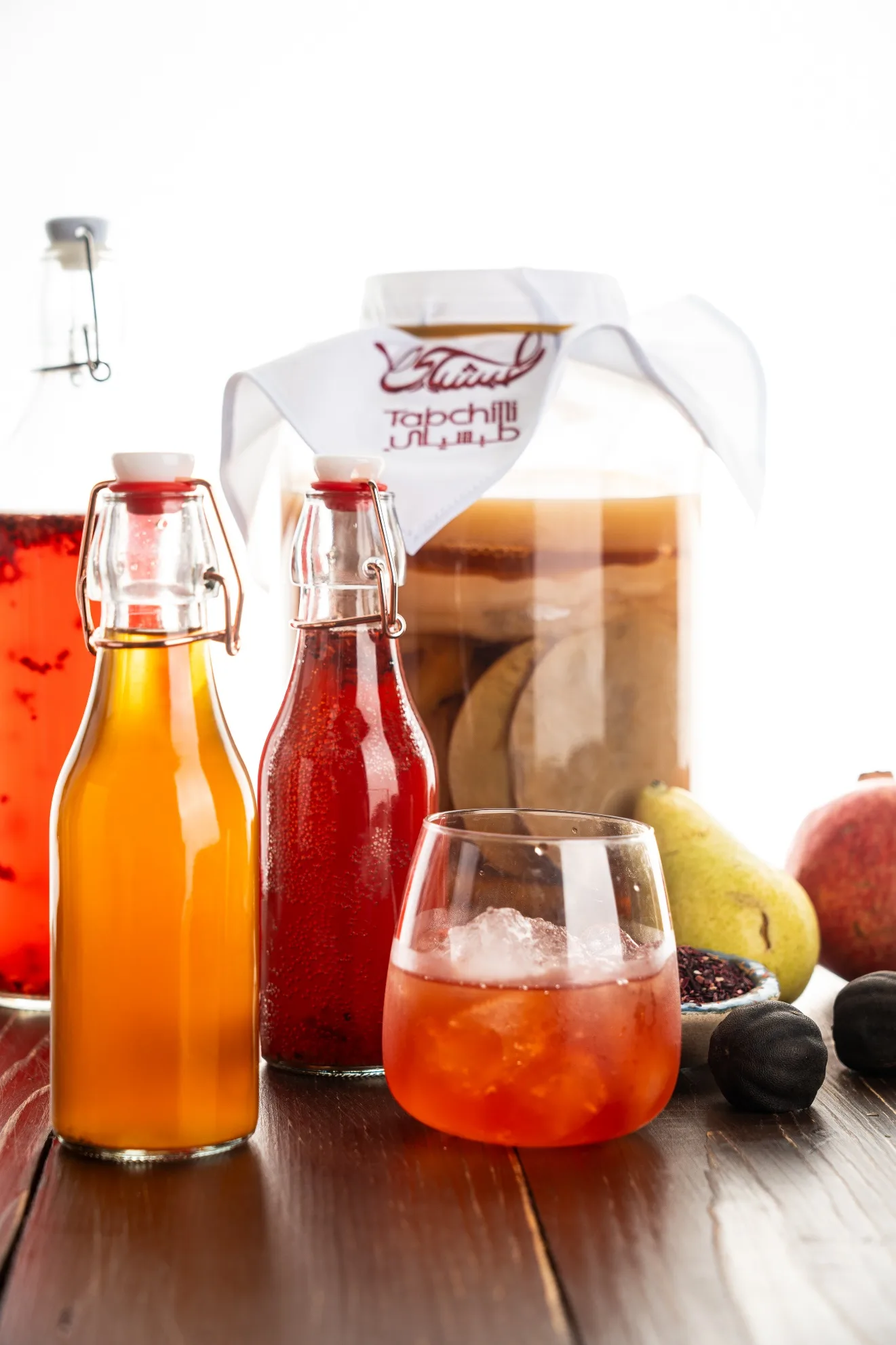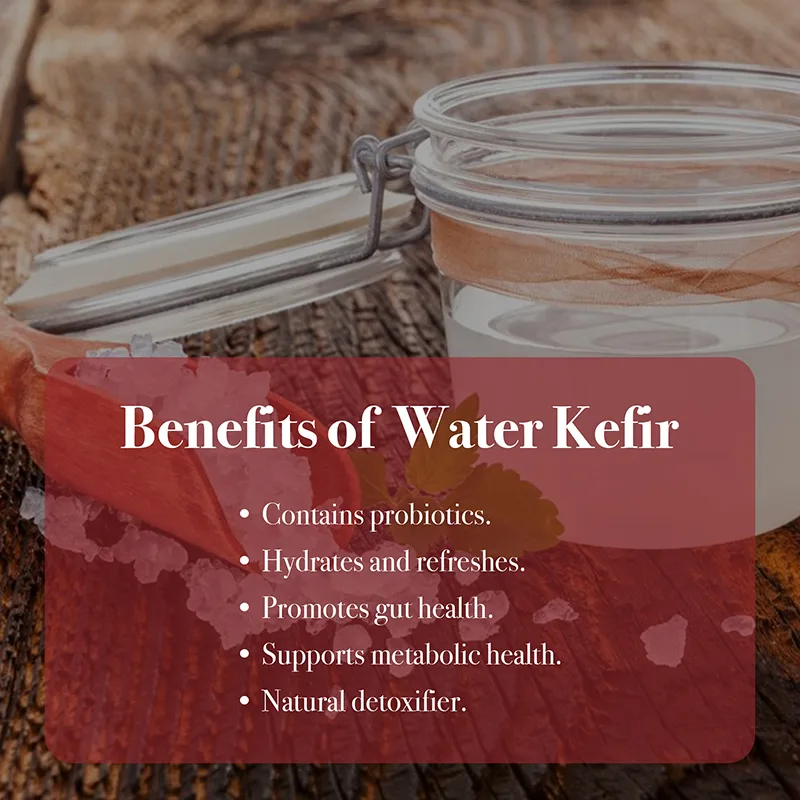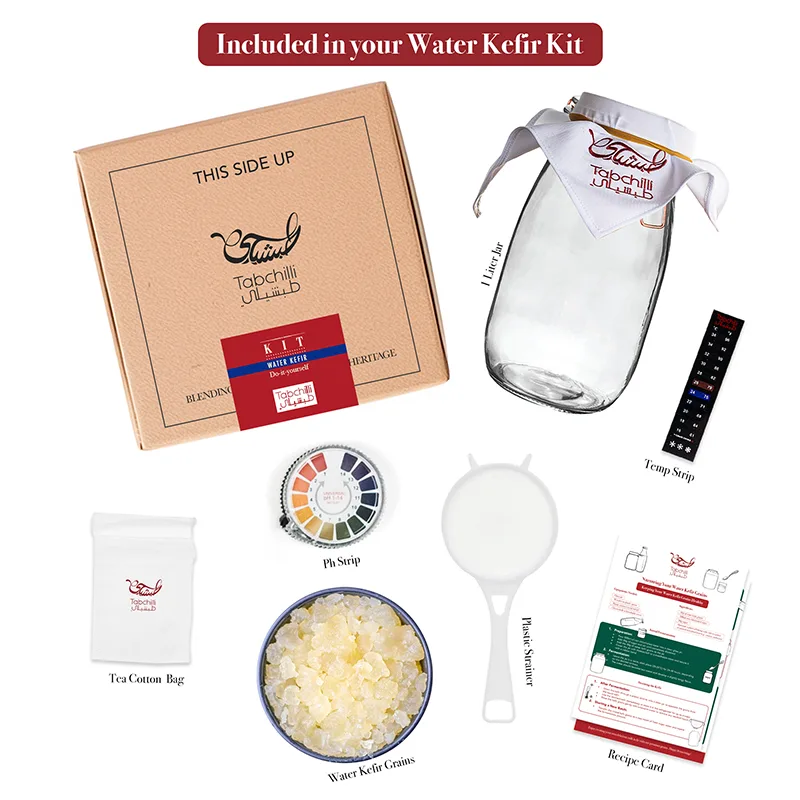Both kombucha and water kefir are popular fermented drinks that offer a variety of health benefits, thanks to their rich probiotic content. However, despite their similarities, these two beverages differ in taste, ingredients, fermentation process, and the type of probiotics they contain. If you’re in Dubai and looking to choose between Kombucha Dubai and Water Kefir Dubai, this guide will help you understand their unique characteristics, making it easier to decide which one fits your health goals and palate preferences.
1. Ingredients and Base Liquid
Kombucha is made by fermenting sweetened tea (typically black or green) with a SCOBY (Symbiotic Culture of Bacteria and Yeast). The tea base gives kombucha its distinct, tangy taste and antioxidant properties.

Water Kefir, on the other hand, uses water and sugar as its base, fermented with water kefir grains—a mix of bacteria and yeast cultures that look like translucent crystals. It’s typically flavored with fruits or herbs after fermentation, resulting in a lighter, sweeter beverage compared to kombucha.

2. Fermentation Process
i. Kombucha Fermentation: Kombucha undergoes a dual fermentation process, lasting 7-14 days. The yeast in the SCOBY breaks down sugar into alcohol, which is then converted into acetic acid by the bacteria, giving kombucha its sour flavor profile.
ii. Water Kefir Fermentation: Water kefir has a shorter fermentation time, usually taking only 24-48 hours. The water kefir grains feed on the sugar in the solution, producing a mild, effervescent drink that’s less acidic than kombucha.
Both drinks use a symbiotic fermentation process involving yeast and bacteria, but kombucha tends to have a stronger acidic taste due to the acetic acid produced during the second stage of fermentation.
3. Types of Probiotics
The probiotics in each drink are different:
i. Kombucha: Contains strains like Acetobacter and Gluconacetobacter, which are acetic acid bacteria, as well as Saccharomyces yeast strains. These probiotics are known for promoting gut health and aiding in digestion
ii. Water Kefir: Contains a broader spectrum of beneficial bacteria such as Lactobacillus, Leuconostoc, and Streptococcus. These bacteria are more similar to the strains found in yogurt, making water kefir a great option for those who want a milder, less tangy probiotic source.
4. Taste and Flavor Profile
Kombucha has a tangy, slightly vinegary flavor with varying levels of sweetness, depending on the fermentation length and the type of tea used. It’s often described as having a tart, effervescent quality with complex undertones.

Water Kefir, in contrast, is milder, with a subtle sweetness and a crisp, refreshing taste. It’s ideal for those who prefer a less acidic beverage. You can easily enhance water kefir’s flavor with fruits like lemon, berries, or herbs like mint, making it more versatile for different palates.
5. Health Benefits
Both drinks are rich in probiotics and offer potential health benefits, such as improved digestion and enhanced gut health. However, due to their differing microbial content, they may offer slightly different benefits:
i. Kombucha: Known for its high levels of antioxidants (especially when brewed with green tea), which can help reduce oxidative stress and support liver health. The acetic acid produced in kombucha may also help balance blood sugar levels.
ii. Water Kefir: Contains more Lactobacillus strains, which are effective for promoting a healthy gut microbiome. This makes it ideal for those with sensitive digestive systems or who are looking for a less acidic probiotic source.

6. Alcohol Content
Both kombucha and water kefir produce small amounts of alcohol during fermentation:
i. Kombucha: Usually contains slightly higher levels of alcohol, up to 0.5% in commercially available options, and higher in homemade batches.
ii. Water Kefir: Has lower alcohol content due to its shorter fermentation time, making it a safer option for children or individuals sensitive to alcohol.
7. Caffeine Content
i. Kombucha: Retains some caffeine from the tea used in the brewing process. For those who are caffeine-sensitive, using green tea or herbal tea can help reduce caffeine levels.
ii. Water Kefir: Naturally caffeine-free, making it a suitable choice for those looking to limit their caffeine intake.
8. How to Choose Between Kombucha and Water Kefir
Your choice between kombucha and water kefir should depend on your taste preference, desired health benefits, and dietary restrictions:
i. Choose Kombucha if: You enjoy bold, tangy flavors and want a drink that offers antioxidants and a complex flavor profile. Kombucha is also ideal if you want a probiotic boost and don’t mind a little caffeine in your diet.
ii. Choose Water Kefir if: You prefer a lighter, sweeter, and more neutral-tasting drink. Water kefir is also caffeine-free and has a lower alcohol content, making it more versatile for people of all ages.
9. Where to Get Kombucha and Water Kefir in Dubai

If you’re in Dubai and looking to start brewing your own kombucha or water kefir, check out Tabchilli for all your fermentation needs:
i. Kombucha Kits: Our complete kits include everything you need to start brewing, including a healthy SCOBY, high-quality tea, and step-by-step instructions.
ii. Water Kefir Kits: We offer easy-to-use water kefir kits with live water kefir grains and brewing supplies.
iii. Workshops: Join our hands-on workshops in Dubai to learn the art of making both kombucha and water kefir, perfect for beginners and enthusiasts looking to expand their knowledge.
At Tabchilli, we provide high-quality kombucha SCOBYs, water kefir grains, and brewing supplies to ensure you have everything you need to brew delicious fermented drinks in Dubai !
1% of each order supports children with juvenile arthritis.